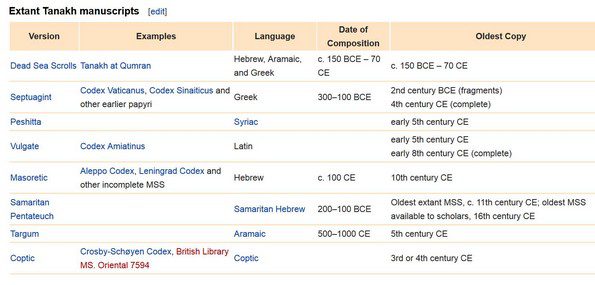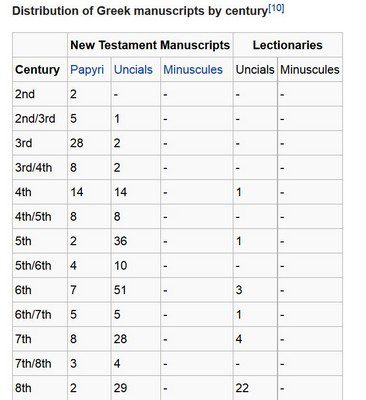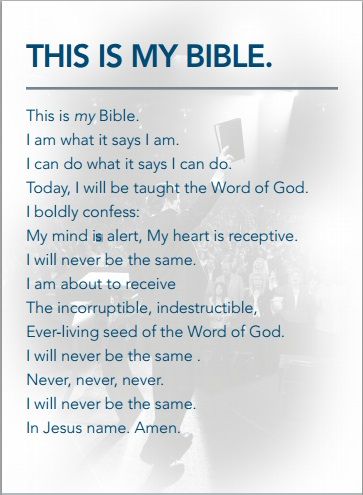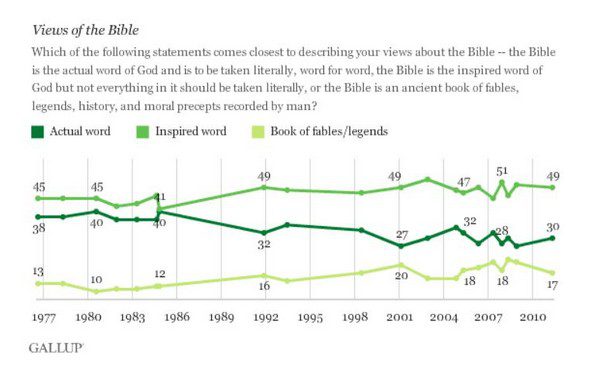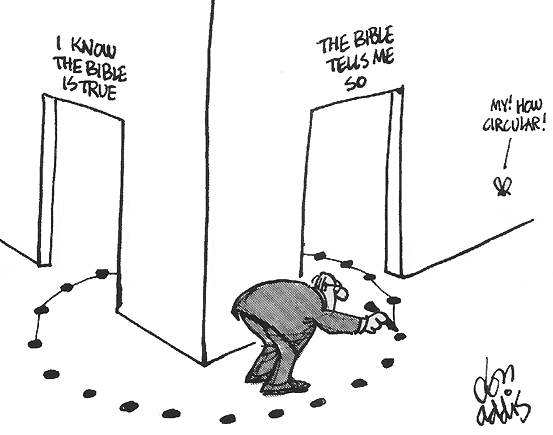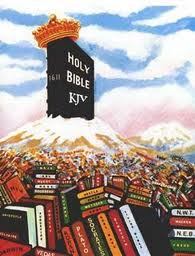
Several readers have asked me to explain the belief that the King James version of the Bible alone is the inspired, inerrant, infallible Word of God for English-speaking people. With this post, I hope to shed some light on what is commonly called King James-Onlyism; the belief that the only true Bible for English-speaking people is the King James version. While this system of belief is absurd and irrational, millions of Americans believe that the King James Bible is the one true Word of God. These same people, by the way, tend to be anti-evolution, young earth creationists. I grew up in King James-only churches, attended a King James-only Bible college, and believed, for many years, that the King James Bible was the perfect Word of God.
Engage in discussion with adherents of King James-Onlyism and you will hear all sorts of theological-sounding verbiage. Some preachers will tell you that the Bible that they use is the 1611 King James version, when in fact the version they actually use is most likely the 1769 revision. There are numerous differences between the 1611 and 1769 editions. These alone destroy the notion that the King James Bible is inerrant. All that it takes to defeat King James-Onlyism is one error, mistake, or contradiction. Inerrancy demands perfection, and that perfection does not exist. Bruce, what about the original Greek and Hebrew manuscripts? These original manuscripts don’t exist either, so there is no such thing as “inerrant in the originals.” That’s a faith claim, one that has zero evidence to back it up. Despite this fact, promoters of King James-Onlyism say that there is a pure line of Greek and Hebrew manuscripts from which the King James Bible was translated. You might hear preachers say that the underlying Greek text for the New Testament is the Textus Receptus (Received Text) or the Majority Text. All sorts of arguments are made for one manuscript family being inerrant and all others being errant, false, and Satanic. Again, remember that it only takes one error, mistake, or contradiction for the doctrine of inerrancy to collapse. This is why I promote Bart Ehrman’s books as I do. I know if Evangelicals will honestly and openly read his books, they will be disabused of the notion that the Bible is inerrant, be it at the manuscript or translation level.
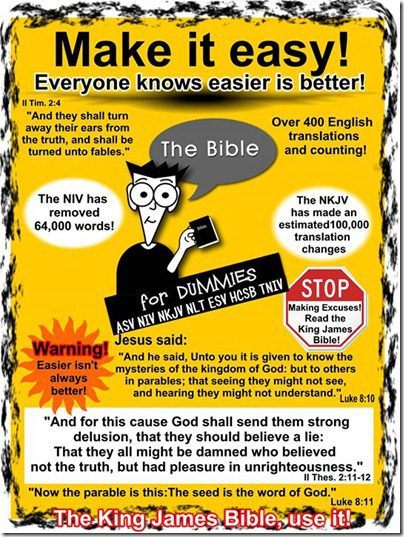
Imagine translating a book from French to English and, when doing the translating work, you only use some extant French manuscripts for determining the meaning of certain words or terms. Wouldn’t a competent translator want to use all the manuscripts and texts at his disposal? Why would he ever want to limit his translating work to only a few manuscripts? So it is with the King James Bible. Translators ignored numerous manuscripts, choosing instead to use previous English and Latin translations and certain Greek New Testaments as the foundation of their translation work. According to Wikipedia:
The translators appear to have otherwise made no first-hand study of ancient manuscript sources, even those that – like the Codex Bezae – would have been readily available to them. In addition to all previous English versions (including, and contrary to their instructions, the Rheimish New Testament which in their preface they criticized); they made wide and eclectic use of all printed editions in the original languages then available, including the ancient Syriac New Testament printed with an interlinear Latin gloss in the Antwerp Polyglot of 1573. In the preface the translators acknowledge consulting translations and commentaries in Chaldee, Hebrew, Syrian, Greek, Latin, Spanish, French, Italian, and German.
The translators took the Bishop’s Bible as their source text, and where they departed from that in favour of another translation, this was most commonly the Geneva Bible. However, the degree to which readings from the Bishop’s Bible survived into final text of the King James Bible varies greatly from company to company, as did the propensity of the King James translators to coin phrases of their own. John Bois’s [sic] notes of the General Committee of Review show that they discussed readings derived from a wide variety of versions and patristic sources; including explicitly both Henry Savile’s 1610 edition of the works of John Chrysostom and the Rheims New Testament, which was the primary source for many of the literal alternative readings provided for the marginal notes.
King James-Onlyism is, at best, magic and trickery. For example, one argument that King James-only believers make is that because the King James Bible has more words than other translations, this means modern translators are guilty of “taking away from the word of God.” After all, the Bible says in Revelation 22:18,19:
For I testify unto every man that heareth the words of the prophecy of this book, If any man shall add unto these things, God shall add unto him the plagues that are written in this book: And if any man shall take away from the words of the book of this prophecy, God shall take away his part out of the book of life, and out of the holy city, and from the things which are written in this book.
Countless other similar arguments are made to defend the inerrancy of the King James Bible. Some Evangelicals take King James-Onlyism one step further when they say the italicized helper words added to the King James Bible by translators are inspired and inerrant too. People who believe this are often followers of the late Peter Ruckman. Ruckmanites, as they are often called, believe that the italicized words are some sort of advanced revelation from God; God moved the King James Bible translators to put the exact helper words he wanted in the text. Amazing, right?
King James-Onlyism is widespread among Independent Fundamentalist Baptist (IFB) Christians. It is not uncommon to read church doctrinal statements that state unambiguously that the King James Bible is the only Bible translation allowed in the pulpit and the various church ministries. All other translations are considered errant and, in many cases, Satanic.
Readers may note that I use the King James version when quoting the Bible. I do this for several reasons. First, I love the poetic flow of the King James Bible. Second, my head is filled with memorized verses from the King James Bible. I spent much of my Christian life immersed in the pages of the King James Bible. Third, I use the King James Bible in my writing because many visitors to this blog come from King James-only sects, churches, and colleges. You know, when in Rome …
Were you raised in a King James-Only church? Please share your experiences in the comment section.
Bruce Gerencser, 68, lives in rural Northwest Ohio with his wife of 47 years. He and his wife have six grown children and sixteen grandchildren. Bruce pastored Evangelical churches for twenty-five years in Ohio, Texas, and Michigan. Bruce left the ministry in 2005, and in 2008 he left Christianity. Bruce is now a humanist and an atheist.
Your comments are welcome and appreciated. All first-time comments are moderated. Please read the commenting rules before commenting.
You can email Bruce via the Contact Form.





